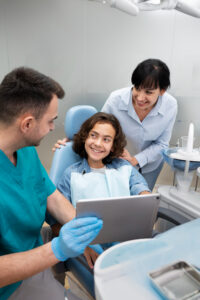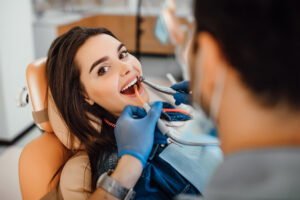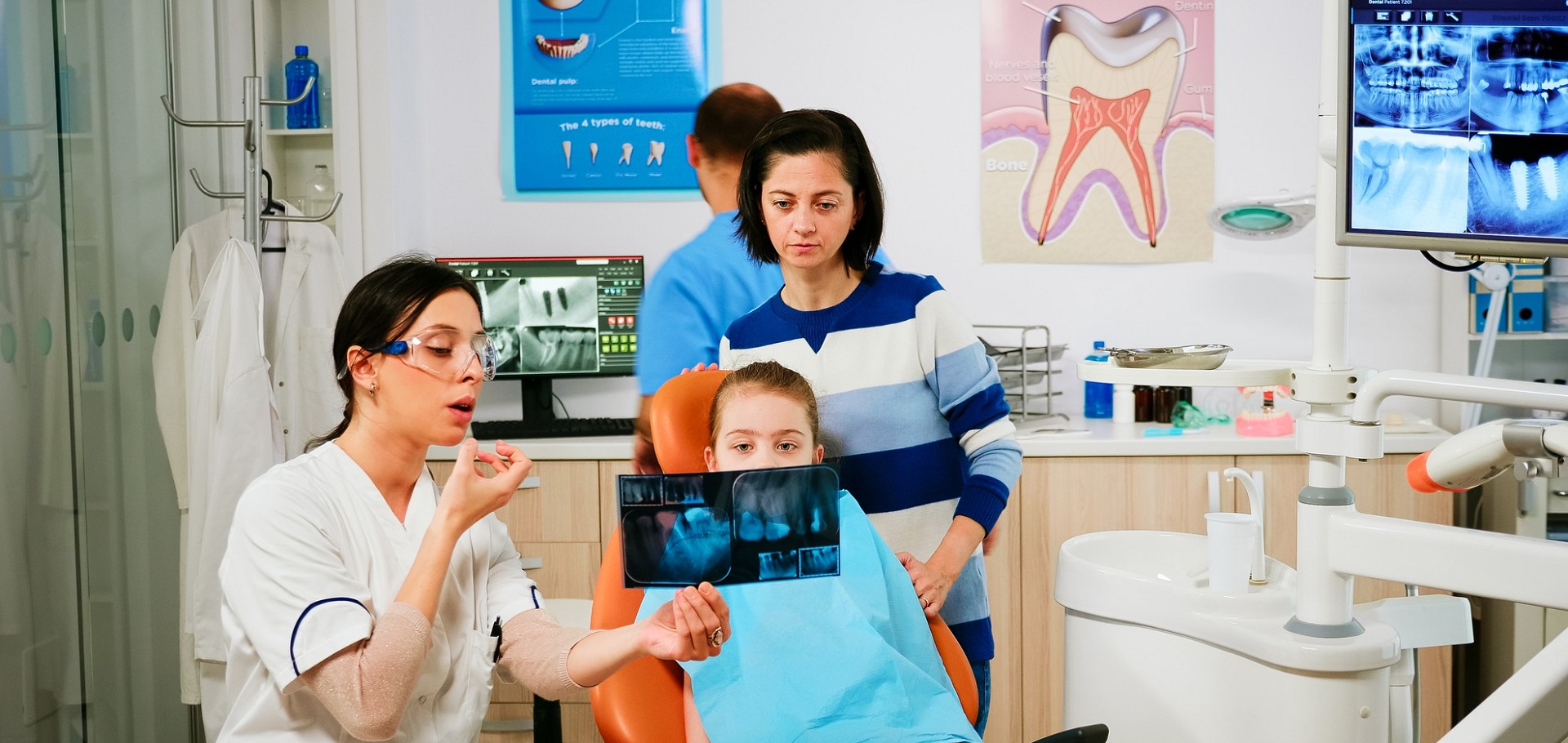Importance Of Dental Health Education
 Oral health care is not only a matter of awareness but also of habits. If we ensure that our little ones acquire this routine from childhood, we will avoid many complications that can cause major problems in adulthood.
Oral health care is not only a matter of awareness but also of habits. If we ensure that our little ones acquire this routine from childhood, we will avoid many complications that can cause major problems in adulthood.
Learn To Play
There are many options and facilities that can help us turn oral hygiene time into a fun game: toothpaste with attractive colors and different brushes that we can turn into “monster catchers”… We can also find books and stories in which it is explained in detail. An entertaining way of the adventures and misadventures that healthy teeth can suffer if they face enemies such as bacterial plaque or cavities.
The important thing is to make brushing a fun moment: at home, we should turn that action into a game instead of something tedious. Motivating them to brush their teeth for longer, play with the foam, discover hidden corners with the brush, or fight a battle with bacteria, among others, can be small tricks to help them face this oral hygiene habit with joy.
Set An Example And Encourage The Acquisition Of Habits
Children like to imitate what their parents do. Adults are the best example at the earliest ages. If mom and dad don’t brush their teeth, the kids probably won’t.
Like other habits, oral hygiene is acquired through repetition. If we skip some brushings or forget them when they sleep away from home, it won’t be easy to automate brushing. On the other hand, maintaining systematic cleaning from a young age will make them automate this practice.
Teaching correct brushing three times daily, including the tongue and gums, is the simplest way to prevent cavities and gum problems. On the other hand, visiting the dentist should not be the last resort. Carrying out regular examinations will help prevent cavities or gum inflammation, among other diseases, as well as annoying pain that could make the child associate with the dentist.
The Role Of The School
The school is intended to train children and contribute to their education in the broadest sense. Incorporating oral hygiene habits into your task will help children generalize them at home. Experts recommend teachers include tooth brushing at school after lunch. This information can be transmitted through cards and other classroom resources, combining theoretical explanations with practical exercises.
 Some Curiosities About Children’s Dental Health
Some Curiosities About Children’s Dental Health
- Oral hygiene should begin before the first tooth emerges, carefully cleaning the baby’s gums with a moistened gauze pad.
- Dental check-ups with the pediatric dentist should begin when the first tooth or birthday emerges.
- Fluoride, in its appropriate concentration according to age, is indicated from the emergence of the first tooth (6 months) for the prevention of cavities.
The Guidelines Recommend The Following:
- Between 6 months and two years of age, brush twice a day with toothpaste with 500 ppm fluoride and the same amount as a grain of rice.
- Between 2 and 6 years, brush twice daily with a toothpaste of 1,000 and 1,450 ppm of fluoride, the same amount as a pea.
- For those over six years old, brush twice daily with toothpaste of 1,450 ppm fluoride and 1-2 cm. From this age onwards, mouthwashes are already recommended to complement oral hygiene.
…

